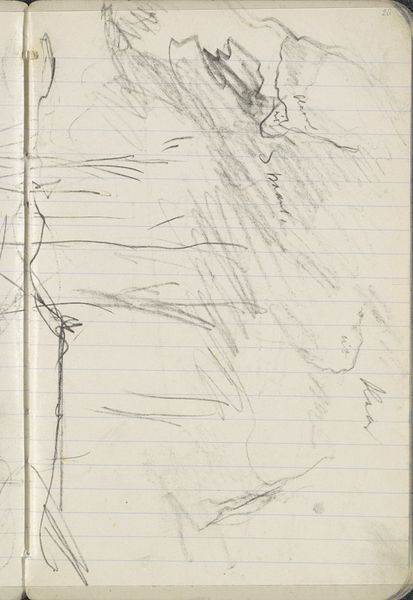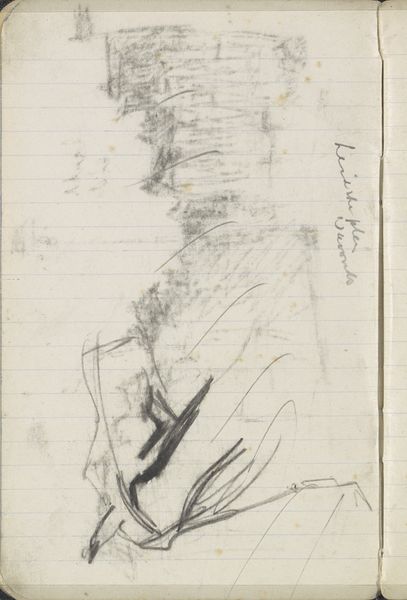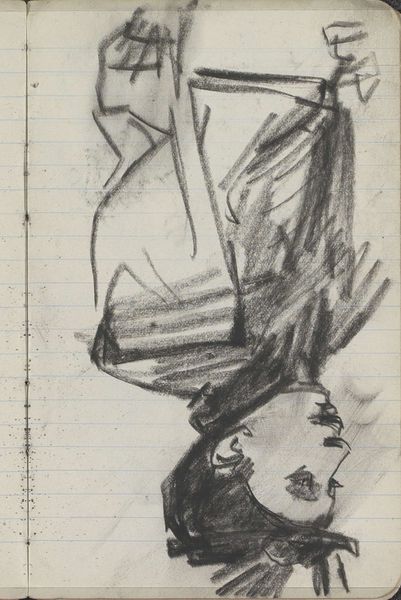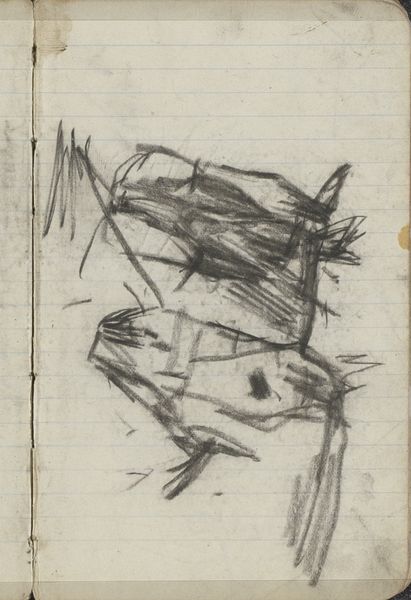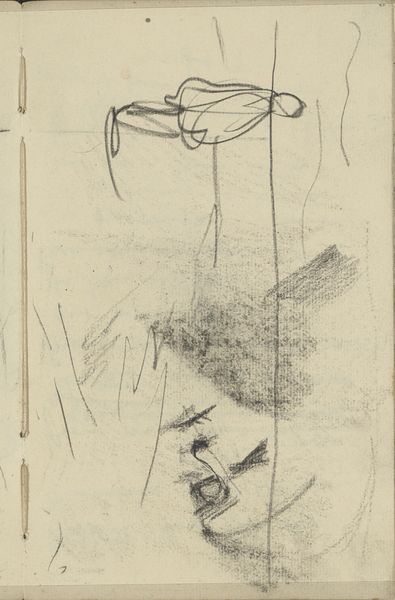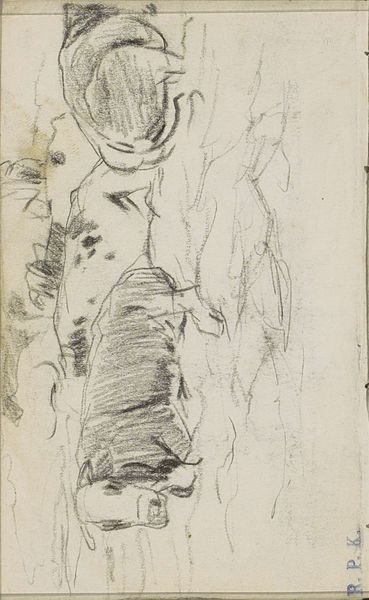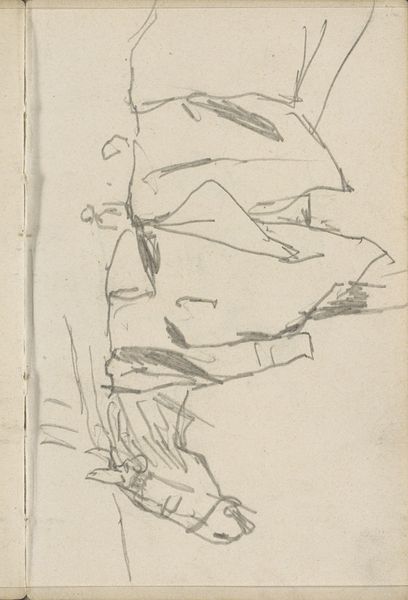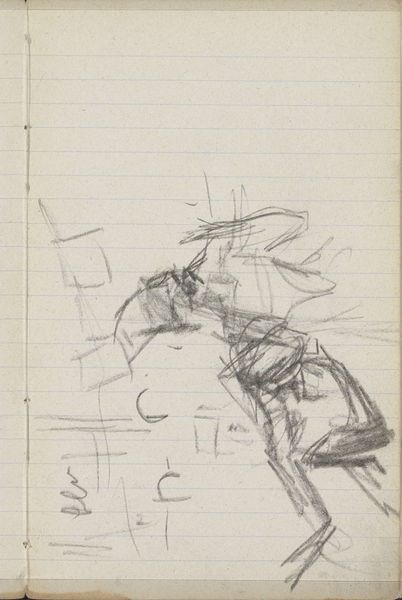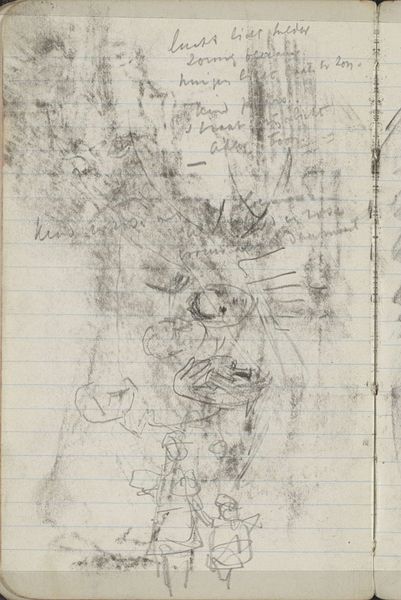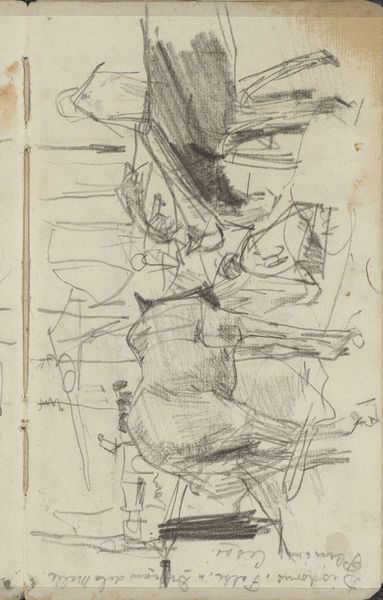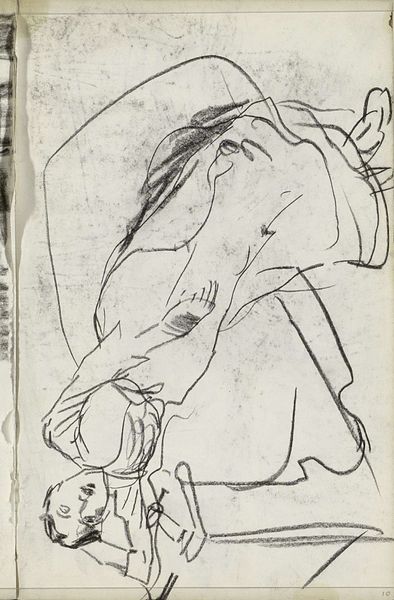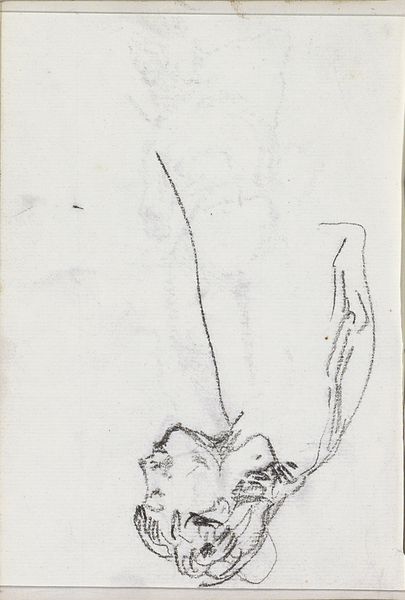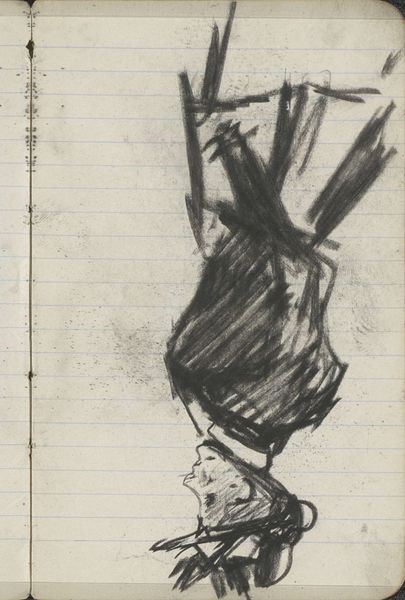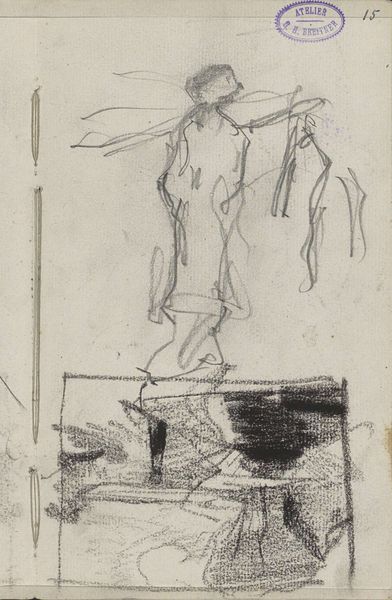
Copyright: Rijks Museum: Open Domain
Curator: What do you make of this little flurry of pencil strokes? It’s Breitner's "Oude Vrouwen," or "Old Women," a drawing dating back to around 1894, now housed right here at the Rijksmuseum. Editor: Hmm, it feels fragile, almost like catching a glimpse of a fading memory. I see these huddled figures, maybe a study of older women... It’s gestural, urgent. There's a rawness to it that pulls me in. What strikes you about it? Curator: You nailed it. Breitner was all about capturing fleeting moments. It’s as if he just saw them for a split second on a street in Amsterdam and frantically sketched the essence of their posture, their bundled forms. There's an unsentimental gaze here, yet filled with humanity. I bet he sketched this one in one of his many notebooks on the go! Editor: Yes, I think that is precisely the case, we may even see one of those notebooks at another vitrine! That idea of the “fleeting moment,” though...it brings up some interesting tensions. Breitner clearly engaged with impressionism, but it was never without this grounding of realism to the socio-economic conditions he observed as a flâneur in Amsterdam. Considering how age and gender intersect to create a marginalization and near invisibility in public space... I see those "fleeting" moments differently now, for a particular demographic. Curator: Precisely! Breitner did love his working-class figures, perhaps even romantacizing them sometimes. It also brings forth a melancholy mood: these aren’t grand portraits; they're quiet observations, whispers on paper, and I feel transported back in time. I also like to imagine the weight of lived experience etched on the faces hidden in the drawing's hasty marks. I mean, he manages to tell an entire story with just a few strokes of pencil. It's poetic, no? Editor: It is evocative. Breitner does make us pause and reflect, but these swift sketches, made during the dawn of social photography in the Netherlands, might reveal as much as they obscure about our own relationship with social class, memory and representation. These "whispers," as you called them, make me ask many questions rather than appreciate an intended truth. Curator: Well, I think that's exactly the power of art, isn't it? A whisper that provokes a thousand questions! Editor: Indeed, thank you. This drawing invites me to investigate further into Breitner’s broader visual essay.
Comments
No comments
Be the first to comment and join the conversation on the ultimate creative platform.
